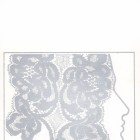Albert Herring 1967Scottish Opera
Read more about the opera Albert Herring
This immediate revival of the 1966 production had the same cast except for the arrival of Judith Pierce as Lady Billows, a role she would repeat frequently for several years to come. She had sung Mrs Grose at Ledlanet in 1966 and returned to Scotland regularly for the rest of her career, singing the title role in Gloriana at Haddo House and a number of roles with Scottish Opera. These included appearances in Turn of the Screw, Der Rosenkavalier, The Barber of Seville, The Marriage of Figaro, The Rape of Lucretia, Hansel and Gretel and The Bartered Bride.
The Perth performance was given a highly favourable review in The Stage of Thursday, 20 April:- ''Anthony Besch's production of Albert Herring was presented at Perth Theatre by the Scottish Opera on April 14, when it was a joy to see how the production has improved since it was here a year ago. This is mainly through a deepening of its serious content, though the singers do not neglect the humorous side.
''Another feature which enables the 1966 and 1967 performances to be compared with great fairness is that there is only one change in the cast, Lady Billows now being played by Judith Pierce. Physically most imposing, Miss Pierce carries a grand sense of aristocratic dominance, comically exaggerated, into her singing and playing, and is undoubtedly an asset to the overall effect.
''On the same basis of comparison after a year, one finds no sign of staling through familiarity among the other singers, and one can in fact say that Catherine Wilson's Nancy is even more vibrantly delightful than before. Gregory Dempsey's Albert has acquired a subtle reserve power and exquisite sense of timing which add a new dimension in accord with a production which uncovers an emotional content wrapped in gaiety.''
Scottish Opera's Sixth Season - 1967
The spring 1967 season of Scottish Opera opened with the excellent new production of Così fan tutte, which was joined by the company's first stagings of Das Rheingold and La bohème. There were also revivals of Otello and Albert Herring.
The 1967 season of mainstage performances involved Perth (Theatre), Glasgow (King's Theatre), Aberdeen (His Majesty's Theatre), and Edinburgh (King's Theatre). For the first time the company was invited to appear at the Edinburgh Festival, with a major contribution to the Stravinsky theme.
The productions were: Cosi fan tutte (9 performances), Albert Herring (4), Rheingold (5), La bohème (7), Otello (5), Rake’s Progress (4) and Soldier’s Tale (6).
The complete schedule for the season was:
Perth, w/c Mon 10 Apr: Wed 12 Cosi fan tutte; Fri 14 Albert Herring; Sat 15 Così fan tutte.
Glasgow, w/c Mon 1 May: Sat 6 Rheingold.
Glasgow, w/c Mon 8 May: Wed 10 Così fan tutte; Thu 11 La bohème; Fri 12 Rheingold; Sat 13 La bohème.
Glasgow, w/c Mon 15 May: Tue 16 Così fan tutte; Wed 17 Otello; Thu 18 m Così fan tutte; Thu 18 e La bohème; Fri 19 Albert Herring; Sat 20 Otello.
Aberdeen, w/c Mon 22 May: Tue 23 Rheingold; Wed 24 Albert Herring; Thu 25 Così fan tutte; Fri 26 Otello; Sat 27 La bohème.
Edinburgh, w/c Mon 29 May: Tue 30 Otello, Wed 31 Così fan tutte; Thu 1 Jun La bohème; Fri 2 Das Rheingold; Sat 3 Otello.
Edinburgh, w/c Mon 5 Jun: Tue 6 Albert Herring; Wed 7 Das Rheingold; Thu 8 m Così fan tutte; Thu 8 e La bohème; Fri 9 Così fan tutte; Sat 10 La bohème.
Edinburgh Festival - King's: 22, 26, 31 Aug; 8 Sep Rake’s Progress.
Edinburgh Festival - Assembly Hall: 4, 5, 6, 7, 8, 9 Sep Soldier’s Tale.
As Scottish Opera gathered strength, by its fifth year the season had therefore grown to an impressive forty performances within Scotland; three Perth; five Aberdeen; eleven Edinburgh (plus ten at the Edinburgh Festival); and eleven Glasgow.
Performance Cast
- Lady Billows an elderly aristocrat
- Florence Pike housekeeper to Lady Billows
- Miss Wordsworth head teacher
- Mr Gedge the Vicar
- Mr Upfold the Mayor
- Superintendent Budd police officer
- Sid from the butcher's
- Nancy from the baker's
- Albert Herring from the greengrocer's
- Mrs Herring the greengrocer, Albert's mother
- Emmie a schoolgirl
- Cis a schoolgirl
- Harry a schoolboy
